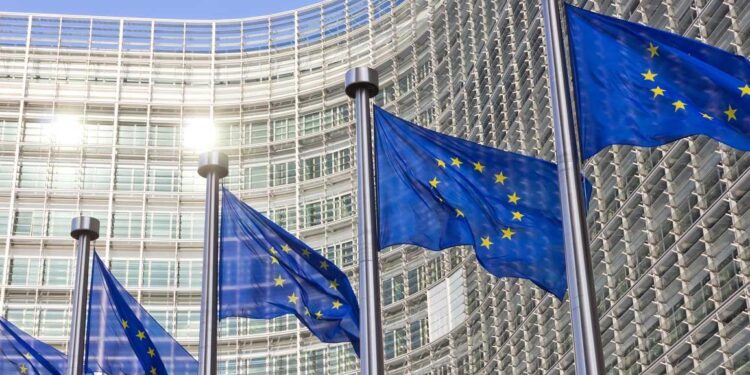The European Union and Serbia have formalized a significant cooperation agreement worth 325 million euros aimed at advancing environmental protection and energy development in the Western Balkans nation. Signed recently, the deal underscores the EU’s commitment to supporting Serbia’s green transition and sustainable growth, enhancing efforts in areas such as renewable energy, energy efficiency, and environmental infrastructure. This co-funding arrangement marks a key step in bolstering Serbia’s alignment with European environmental standards and its broader integration into the EU framework.
EU and Serbia Strengthen Partnership with Significant Environment and Energy Co-Funding Agreement
The European Union and Serbia have formalized a landmark agreement aimed at accelerating sustainable development across the Western Balkans. Valued at 325 million euros, this co-funding initiative targets critical projects within the environment and energy sectors, reinforcing Serbia’s commitment to green transition and regional integration. Key areas supported under this deal include:
- Reduction of carbon emissions through renewable energy expansion
- Modernization of waste management and water treatment facilities
- Enhanced energy efficiency in public infrastructure
- Promotion of biodiversity and ecosystem protection
This strategic partnership stands as a cornerstone in Serbia’s roadmap toward EU accession, bringing tangible benefits to local communities while fostering environmental resilience. Below is a brief overview of the main funding allocations:
| Sector | Allocation (Million €) | Primary Focus |
|---|---|---|
| Renewable Energy | 150 | Solar and wind power projects |
| Water & Waste Management | 100 | Upgrading treatment plants |
| Energy Efficiency | 50 | Public building retrofitting |
| Environmental Conservation | 25 | Protecting natural habitats |
Detailed Insights into the Allocation and Impact of the 325 Million Euro Deal
The €325 million funding agreement between the European Union and Serbia marks a pivotal step towards accelerating the country’s transition to sustainable energy and enhanced environmental protection. This co-funding initiative aims to support projects that address key challenges such as reducing carbon emissions, improving energy efficiency, and upgrading waste management infrastructure. A significant portion of the funds will be directed to expanding renewable energy sources, including solar and wind power installations, fostering Serbia’s compliance with EU climate targets.
Key allocation areas include:
- Modernizing energy grids to accommodate renewable inputs
- Implementing advanced water purification and waste recycling systems
- Enhancing air quality monitoring and pollution control measures
- Supporting local communities through green job creation and training
| Sector | Allocated Funds (€ million) | Expected Impact |
|---|---|---|
| Renewable Energy | 120 | 30% increase in clean energy capacity |
| Waste Management | 80 | 50% reduction in landfill volumes |
| Energy Efficiency | 75 | 20% improvement in consumption rates |
| Environmental Monitoring | 50 | Enhanced pollution data and response |
Recommendations for Maximizing the Effectiveness of Joint Sustainable Development Projects
To ensure the success of the recent €325 million co-funding deal between the EU and Serbia, it is essential to implement robust coordination mechanisms. Clear communication channels between stakeholders help streamline decision-making and prevent project delays. Additionally, engaging local communities early in the planning phases fosters ownership and encourages sustainable practices at the grassroots level. Prioritizing transparency through regular progress reports and open data sharing also builds trust among all parties involved, strengthening collaboration across borders.
Strategic alignment of objectives is another cornerstone for maximizing impact. Projects should be designed with a comprehensive approach that integrates environmental preservation with energy innovation to address Serbia’s unique challenges. Key recommendations include:
- Adopting adaptive management to respond to evolving environmental conditions and technological advances.
- Investing in capacity building for local authorities and organizations to sustain project benefits beyond the funding period.
- Leveraging public-private partnerships to scale up innovation and enhance resource mobilization.
| Key Success Factor | Description | Expected Outcome |
|---|---|---|
| Community Involvement | Engage stakeholders from project inception | Long-term local support |
| Transparent Reporting | Regular updates and open access data | Increased accountability |
| Adaptive Strategies | Flexibility to adjust projects when needed | Resilience to changing conditions |
Wrapping Up
The signing of the €325 million co-funding agreement between the European Union and Serbia marks a significant step forward in bolstering the country’s environmental and energy sectors. This partnership not only underlines the EU’s commitment to supporting Serbia’s sustainable development goals but also reinforces the broader regional efforts to address climate change and enhance energy efficiency. As implementation of the funded projects progresses, stakeholders will closely monitor how these investments translate into tangible environmental improvements and a greener energy landscape for Serbia.















